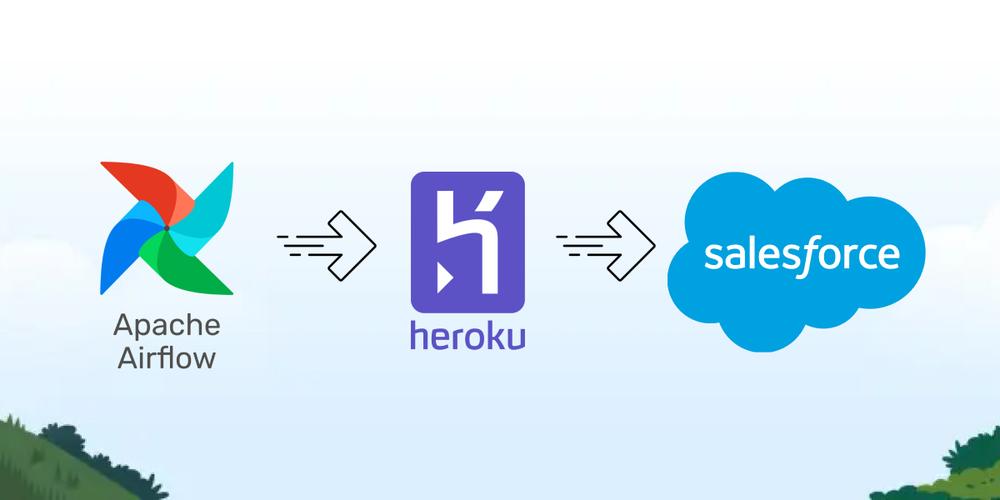In today's data-driven world, businesses often find themselves juggling data from various sources, each with its unique format and structure. Managing this data efficiently is crucial for making informed decisions and gaining a competitive edge. In this blog, we'll explore how you can harness the power of Apache Airflow and Heroku to create a unified data ecosystem, complete with bronze, silver, and gold data layers. We'll then demonstrate how to seamlessly integrate this consolidated data with Salesforce using Heroku Connect.
The Power of Apache Airflow on Heroku:
Setting up Apache Airflow on Heroku:
To get started, you'll need to set up Apache Airflow on Heroku. Heroku provides a managed and scalable environment that simplifies the deployment and maintenance of Airflow. Once Airflow is up and running on Heroku, you can begin orchestrating your data integration tasks.
Managing Different Data Sources (Medallion Architecture):
Medallion Architecture describes a series of data layers that denote the quality of data stored in the data warehouse. This architectural framework ensures that data undergoes rigorous processes for validation and transformation across multiple layers, all while maintaining the core principles of atomicity, consistency, isolation, and durability. The data quality is categorized into bronze (raw), silver (validated), and gold (enriched) layers, reflecting the various stages of data refinement before it's optimized for efficient analytics and storage.
- Bronze Data Layer: The bronze data layer is the first stop in your data pipeline. It's where you ingest raw data from various sources, be it databases, APIs, or file systems. Apache Airflow excels at handling data extraction, transformation, and loading (ETL) tasks. You can create custom Python scripts or leverage existing Airflow operators to fetch data from these sources.
- Silver Data Layer: After the data has been ingested into the bronze layer, it's time to refine it. In the silver data layer, you clean, transform, and enrich the data to make it more suitable for analysis. Again, Apache Airflow's flexibility comes into play. You can design workflows that apply data quality checks, perform aggregations, and ensure data consistency.
- Gold Data Layer: The gold data layer represents the final, high-quality data that's ready for consumption. Here, you can create structured datasets, build data models, and even perform advanced analytics. The data in this layer is valuable for generating insights and making strategic decisions.
Seamless Integration with Salesforce using Heroku Connect:
Now that you've established a robust data pipeline with Airflow, it's time to connect this data with Salesforce, a powerful CRM platform.
Setting up Heroku Connect:
Heroku Connect is a Heroku add-on that enables seamless data synchronization between your Heroku Postgres database and Salesforce. You can configure Heroku Connect to map the tables in your gold data layer to Salesforce objects.
Benefits of Salesforce Integration:
- Real-time Data Sync: Heroku Connect ensures that your Salesforce instance is continuously updated with the latest data from your gold data layer, providing real-time insights to your sales and customer service teams.
- Unified Customer View: With Salesforce integration, you can create a unified customer view by consolidating data from various sources. This enables personalized customer interactions and more effective sales and marketing campaigns.
- Effortless Data Access: Salesforce users can access and work with the integrated data seamlessly, eliminating the need for manual data imports and exports.
Conclusion:
Incorporating Apache Airflow on Heroku to manage different data sources and creating bronze, silver, and gold data layers provides a structured and scalable approach to data management. When combined with Heroku Connect's integration with Salesforce, your organization gains access to a unified data ecosystem that empowers data-driven decision-making, enhances customer engagement, and drives business success. Harnessing the power of these technologies can truly yield exceptional outcomes for your business in today's data-centric world.
